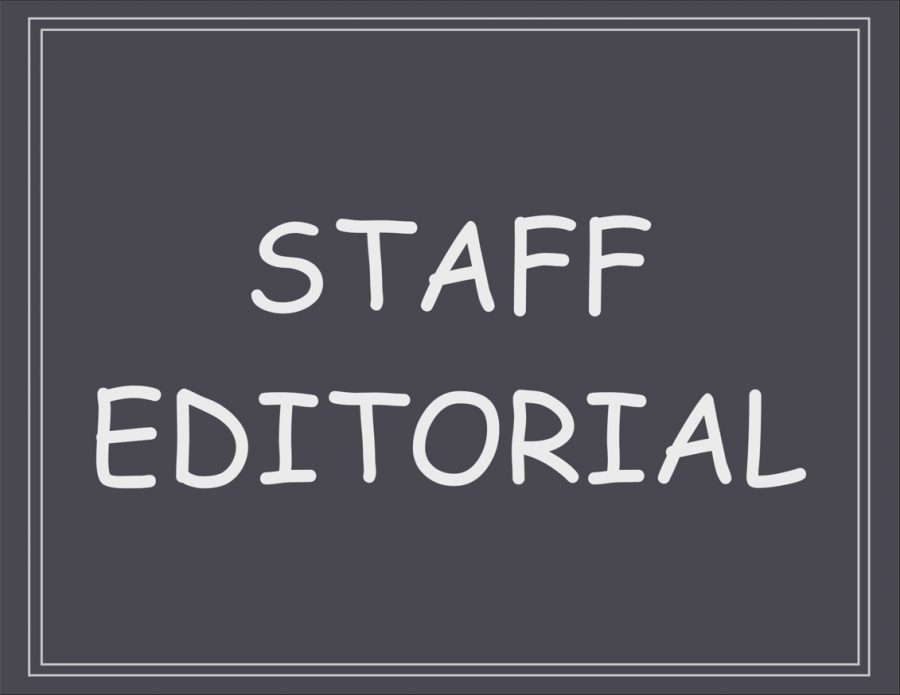Staff Editorial: The importance of sexual harassment education
The #MeToo movement is impacting everyone and teens need to be educated about this serious issue
December 27, 2018
The #MeToo movement has struck the attention of a great number of people, but most importantly, it needs to grab the attention of teenagers because it applies to them too.
Most recently, there is a movement called #MeTooK12 which works to promote awareness about sexual harassment in schools.
The problem is that teenagers often do not realize what types of actions are considered sexual harassment. Often, it seems, teens think they are just “messing around,” but in fact they could be involved in sexual harassment or even assault.
Sexual harassment includes name calling, threats, inappropriate jokes, the spreading of rumors, gestures/leers, words written on bathroom walls, grabbing, pushing, cornering, unwanted kissing or touching, any type of inappropriate touching.
A great number of teens would not know that these are all forms of sexual harassment because of the biggest problem of all—we are not educated about it.
The topics of dating violence and sexual harassment are taught in classes like Health and Interpersonal Relationships, but it is just not enough.
“In our standards, sexual harassment is not in there,” Interpersonal Relationships and Child Development teacher, Kara Sears said. “but we do a whole unit on dating, and to me, it was important to cover not only the great part of dating, but also just in case, if you’re going through this [dating violence], it’s not okay and we can get help.”
Interpersonal Relationships is an elective course, meaning that it is not a required class. Therefore, only a small number of students are benefiting from this instruction.
Health, on the other hand, is a course that is required for the Indiana Core 40, but what if the student takes the course through APEX? There is only a brief section on sexual assault which means that a large population of our student body is not being educated at all.
Furthermore, what if a student does not take Health until senior year? By then, they have gone through their whole high school career not being educated about this serious topic, and that is not acceptable.
Not only does this topic need to be taught at an earlier age, but it needs to be taught considering all genders and sexual orientations.
Unfortunately, if this topic is brought up, it is solely based on the assumption that females are the ones being harrassed and males are the perpetrators.
“We talked about sexual assault [in Health] in depth,” junior Dashaun Holloway said. “I personally didn’t care about it because we mostly talked about how it happens to women, not men.”
It is true that women are more frequently assaulted than men. According to RAINN, the nation’s largest anti-sexual violence organization, 82% of all victims under 18 are female.
But, males do experience sexual assault as well. According to RAINN, 1 out of 10 males are survivors of rape. Therefore, it needs to be made clear that males are not only perpetrators, but they can be survivors as well.
We want students to have more opportunities to be educated on sexual harassment but also for teachers to feel comfortable enough to teach this topic. It is an issue that is not going to go away, it is not something that we can push to the side, it is present and active.
We need to work to dispel the rape myths that exist in our society: the misconception that sexual harassment or assault only happens to certain types of people or this idea that he or she was “asking for it” or the idea that how the survivor was dressed during the attack matters.
These are the types of comments that prevent survivors from speaking up. No survivor should feel like it is their fault.
Males often do not report sexual harassment because they feel that if they were to come out and speak up, then they would be seen as weak. But, in reality, every person deserves the opportunity to get help and feel that they will not be looked down upon.
Therefore, we need to destroy the discomfort and fear that comes with the words “rape,” “sexual harassment,” and “sexual assault.” We need to destroy this idea that these words are taboo and shouldn’t be talked about. They need to be talked about. Teens need to be educated. We want to be educated, and we want our school to teach us how to take a stand.
The views in this staff editorial do not necessarily reflect the views of Elkhart Memorial High School or Elkhart Community Schools. Reach our EIC’s at [email protected] and/or [email protected].







